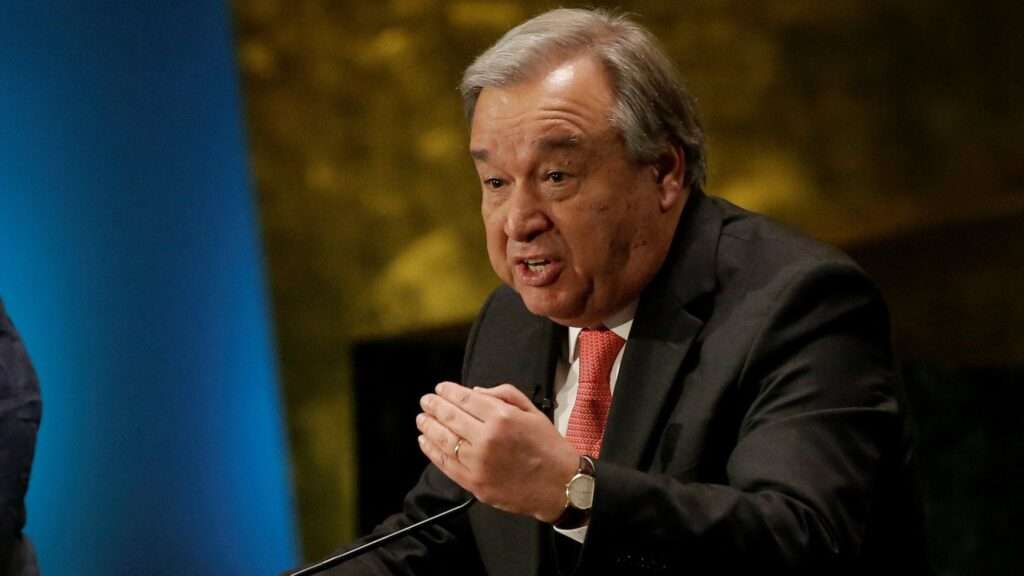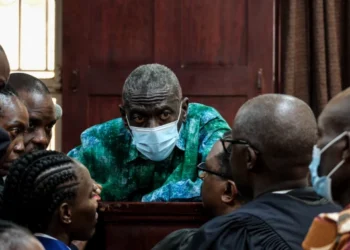Repeated drone attacks over the past fortnight have devastated critical infrastructure in Port Sudan, a key hub for humanitarian operations, and put civilian lives at increasing risk, according to a United Nations-appointed human rights expert.
Radhouane Nouicer, the designated expert on the human rights situation in Sudan for the UN Office of the High Commissioner for Human Rights (OHCHR), issued a warning as the violence threatens to spiral further out of control.
“These ongoing attacks on critical infrastructure are putting lives at risk, worsening the humanitarian crisis, and violating basic human rights,” Nouicer said, emphasizing the dire consequences for millions in the war-torn nation.
Among the targets hit by drone strikes are Port Sudan’s main electricity substation, fuel and gas storage depots, and even residential areas. The destruction has resulted in widespread power outages, limited access to essential supplies like food and clean water, and disrupted healthcare services. Several densely populated areas have also been struck, forcing many families to flee their homes once again.
“It is devastating to see the continued destruction of infrastructure and social services in Sudan,” Nouicer lamented, adding that the attacks are systematically dismantling what little support systems remain.
Once a critical conduit for delivering life-saving aid, Port Sudan has increasingly become a target in the ongoing civil conflict that began in April 2023. The city, located along the Red Sea, has served as a major entry point for humanitarian assistance as the rest of the country remains engulfed in conflict between government forces and the Rapid Support Forces (RSF) militia.
The war has already left over 18,000 people dead and displaced more than 13 million. An estimated 30.4 million people across Sudan now require humanitarian assistance—a number that continues to grow.
Recent drone strikes forced a temporary suspension of United Nations aid flights at Port Sudan airport, further crippling the movement of humanitarian personnel and resources into the country.
Global Leaders Urged To Act Swiftly
Speaking at the League of Arab States Summit in Iraq, UN Secretary-General António Guterres called for an urgent international push to end the escalating violence and prevent famine and mass displacement from worsening.
“Multilateral efforts are urgently needed to stop the appalling violence, famine and mass displacement,” Guterres said, as he met with both African Union and Arab League leaders.

He urged regional and international actors to press for unhindered humanitarian access and to support efforts aimed at securing a “durable, comprehensive ceasefire.”
The strikes are not confined to Port Sudan. Similar incidents have been reported in North River Nile and the White Nile states. According to local reports, power stations in those areas have been hit, with RSF fighters suspected of being behind the attacks as they battle government troops in a brutal contest for control of the country.
Nouicer described the recent wave of strikes as a “major escalation” with “alarming implications” for civilian safety and welfare. He reiterated that under international humanitarian law, civilian infrastructure must not be targeted during armed conflict.
“Civilian infrastructure is protected under international law and must never be a target,” Nouicer said, calling on all parties in Sudan to immediately halt attacks on non-military installations.
As the crisis deepens, the international community faces growing pressure to intervene meaningfully before the humanitarian situation deteriorates even further.
READ ALSO: Inequalities in Ghana’s Public Sector Remuneration Inducing Economic Injustice























